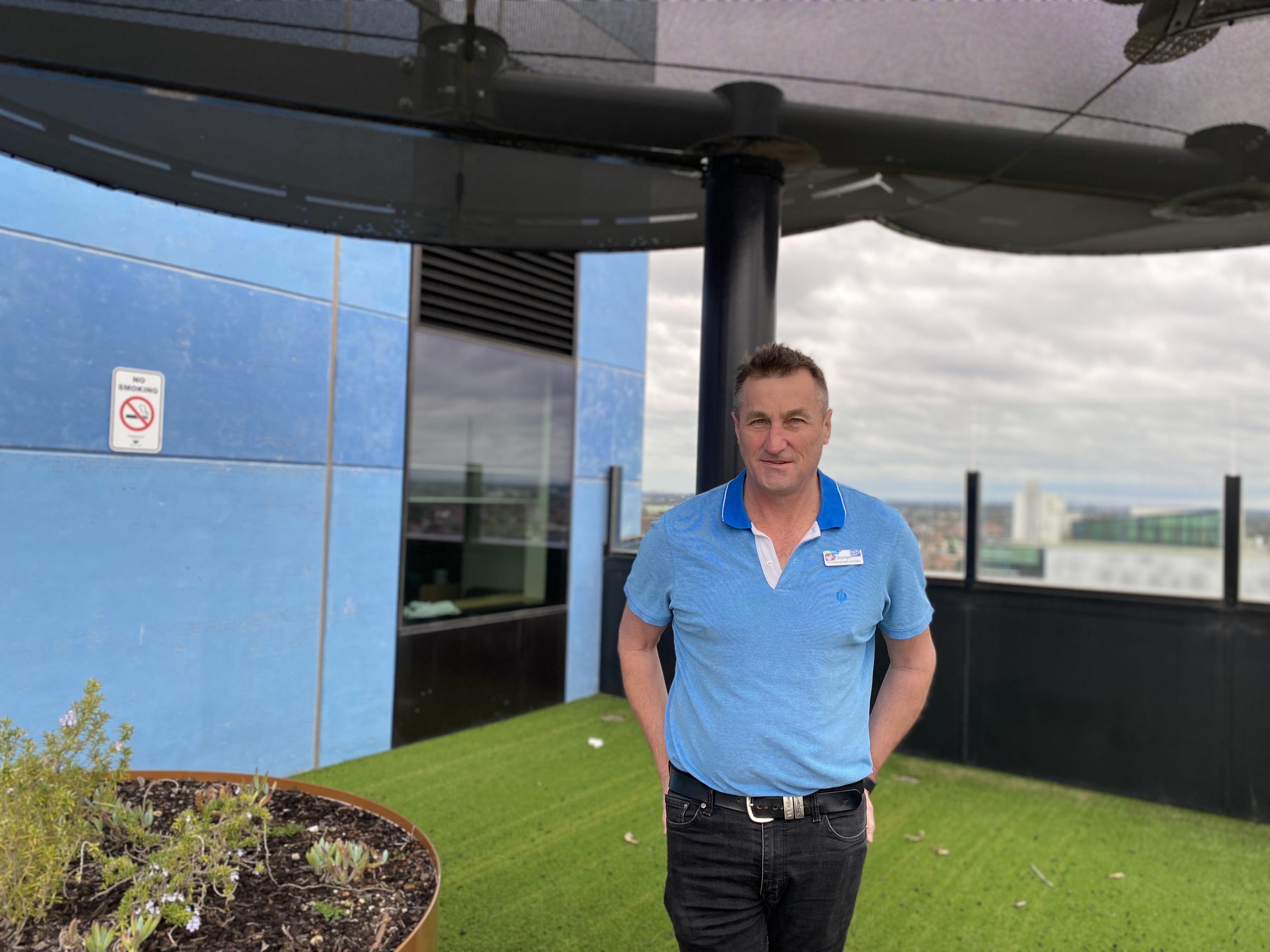Meet Darren McLellan. Over the past three decades, his career has been characterised by hard work, persistence and reinvention. He shares some insights with us into his new role and encourages other colleagues seeking a new challenge to consider that the change they need could be found closer to home, at Western Health.
“I’ve been at Western Health 30 years, which is more than half my life and I love it. I’ve made lots of friends and it has been really interesting. There are opportunities within this health service to change, improve or branch out, you just have to work hard and be persistent.
I’ve found that no one will turn you down if you want to learn new skills or want to change positions, or departments.
I first started at Western Health at Footscray Hospital back in 1990 as an orderly. My mum worked in the kitchen and she told me that they were “screaming out for orderlies”, so I thought I’d give it a go. I started out as a casual and then I ended up with a full time job.
After a while, I was asked if I was interested in becoming a plaster technician, so I took that on part-time and then when the orderlies and security teams merged, I took on a supervisor role. After 16 years, I thought I just needed a break, so I took two years off. Then, one day I saw a theatre tech job in the paper.
I applied and, well the rest is history; I went on to become the Theatre Tech Services Manager.
Most people outside of hospitals don’t really know what a theatre tech does, I usually start off by saying- have you ever had an operation? Well, theatre techs set up all the equipment for your operation, it can be open surgery or laparoscopic and it includes positioning the equipment on the table and setting everything up from the lights and screens for surgeons, to positioning the patient on the table and packing up after the operation.
I wish more people understood the role of a theatre tech, because they do a great job and it’s a really specialised field that is essential in every hospital.
It can be quite busy, for instance if you have an Urology list with a lot of cystoscopies, they can do six cases in a morning, or, on the other hand, you get the big long case where it’s like doing an open pancreatectomy, which take you from 8:30 in the morning up until six at night.
Managing a team of 59 theatre techs, including bank staff, has definitely been my most challenging role.
It’s a diverse range of people, and the past couple of years have been really challenging.
It was such a huge change working during COVID-19, if we had a patient coming down to theatre, we’d have a team meeting to prepare and we’d make sure we were donning and doffing and that we had a spotter.
It was something that none of us had ever experienced and the way our guys dealt with it was excellent, but it was hard and many staff didn’t have leave and they are feeling a bit worn out.
I personally just felt recently like I needed a change and then this opportunity to be the No Lift Coordinator came up.
It provided me with the opportunity to use my existing skills and learn new ones.
Western Health prides itself on looking after their staff and making sure they are safe in the workplace, particularly when it comes to Back for Life and the manual handling.
At the moment, I’m going through the backlog of trainers and making sure that we are up-to-date with our techniques and teaching for Back for Life.
During COVID a lot of the face-to-face training was impacted. It just can’t be done comprehensively online because you need to be there with the equipment showing people how to use it and correcting techniques.
I’m going to be a super trainer, so I will train the trainers and then that filters out across the organisation from nurses, physiotherapies, occupational therapists to theatre techs and security.
It’s great that we have lots of equipment, such as: hoists, slings, slides and mattresses to assist staff, but we need to ensure that staff are competent and confident to use them.
We have a lot of bariatric patients and we are trying to move away from manual handling, so that we can keep our staff safe and support our patients’ needs.
I’m basically the Manual Handling Coordinator and then I will transition into the Occupational Health and Safety Advisor role, once I have done some additional training, which Western Health is supporting me to undertake.
What motivates me in my work is making sure that our patient’s get the best care, no matter what role I’m in at the time.
I think we should treat our patients the same way we want to be treated. It’s sounds simple, but it’s what we are all here for.”
